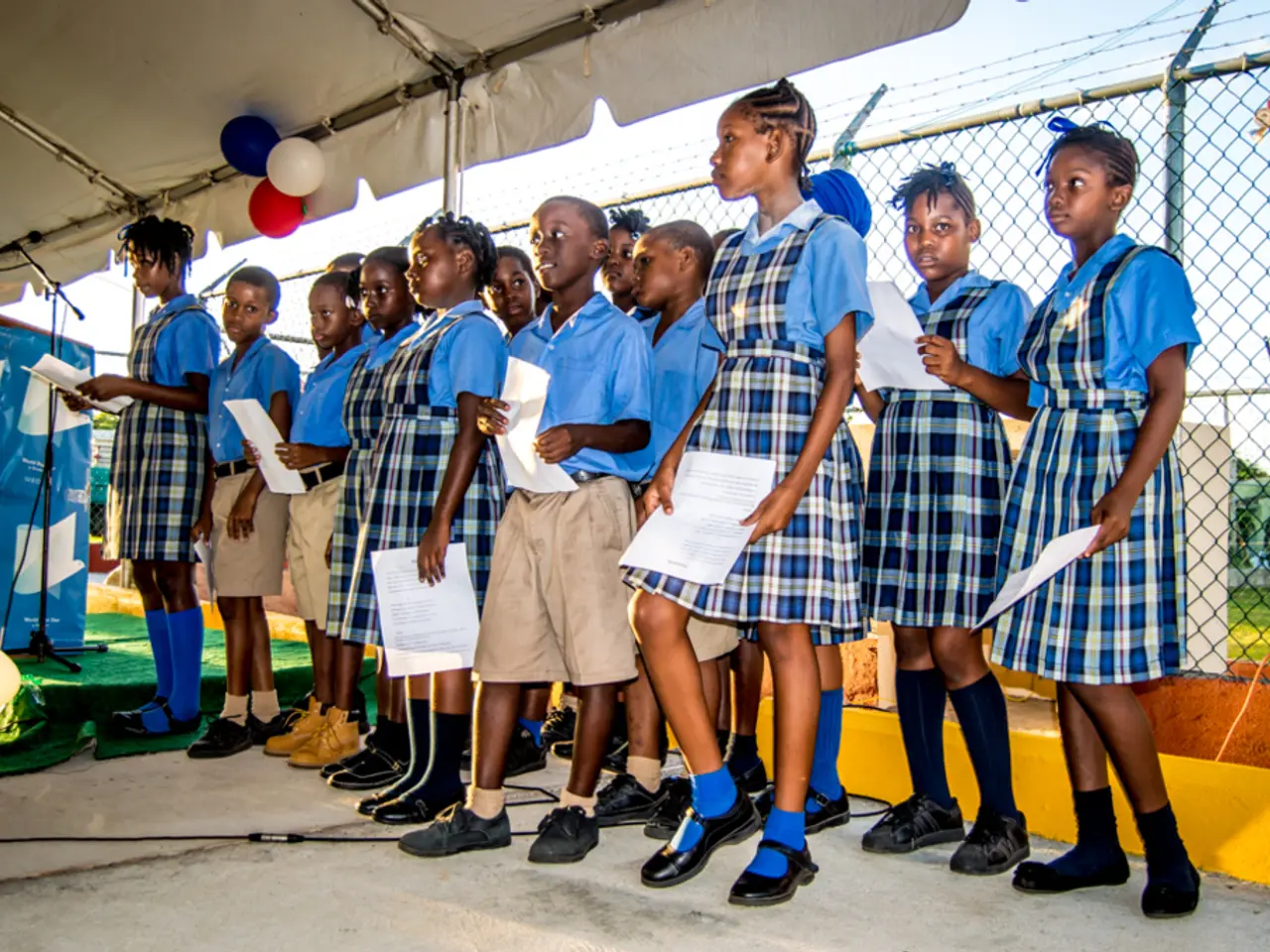Students Returning to Schools Amidst American Police State: Exploring the Implications
================================================================================
In the United States, a troubling trend has emerged in the nation's schools, with an increasing number of children being treated like hardened criminals. This harsh treatment, which includes handcuffing, arrests, tasering, and solitary confinement, has long-term negative effects on children’s education and development.
The issue is not just limited to severe rule-breaking. Not even good deeds go unpunished in schools, with students being given detention for sharing their lunch or suspended for shaving their head in sympathy for a friend who had lost her hair to chemotherapy.
These punitive disciplinary measures, such as suspensions and expulsions, disproportionately affect students of color, disabled students, foster youth, and homeless children, pushing them out of classrooms and leading to significant educational setbacks.
One example of this is foster youth in California, who lost up to 121 days of instruction per 100 students due to suspensions compared to an average of 10 days statewide.
Corporal punishment, a form of discipline associated with detention-like harshness, further harms students by increasing risks for anxiety, depression, aggression, bullying, and creating unsafe school environments. It models violence as a conflict resolution method, which can have lasting mental and social consequences.
Policies that create fear of detention, such as immigration enforcement influences, lead to increased absenteeism, stress, and anxiety, interfering with consistent school attendance and achievement for immigrant and mixed-status families’ children. These children may avoid school due to fear of parental or self-detention, worsening educational outcomes and emotional well-being.
Recent legislative reforms, such as California’s ban on suspensions or expulsions for minor behavior termed “willful defiance,” aim to replace punitive measures with restorative justice and positive behavioral supports, showing some success in mitigating these harms.
The use of school resource officers, funded by the U.S. Department of Justice, acts as de facto wardens in schools, contributing to the school-to-prison pipeline. The growing presence of police in U.S. schools results in greater police involvement in routine discipline matters.
The tyranny of the Nanny State is disguised as "the better good." Surveillance cameras, government agents listening in on phone calls, reading emails and text messages, mandatory health care, sugary soda bans, anti-bullying laws, zero tolerance policies, political correctness, and other policies are outward signs of a government that believes it knows what is best for the people.
Parents in the United States have been fined and threatened with jail time for their children's bad behavior or tardiness at school. Lockdowns and active shooter drills in schools are causing children to suffer from post-traumatic stress disorder, nightmares, anxiety, mistrust of adults in authority, and feelings of anger, depression, humiliation, despair, and delusion.
Look-alike weapons, such as toy guns, hand-drawn pictures of guns, pencils twirled in a "threatening" manner, imaginary bows and arrows, fingers positioned like guns, can also land a student in hot water, in some cases getting them expelled from school or charged with a crime. Students are punished for minor transgressions such as playing cops and robbers on the playground, bringing LEGOs to school, or having a food fight.
The government's approach towards individual freedoms is a long-term effort to brainwash young people into believing that civil liberties are disposable. Children in the United States spend a significant amount of their waking hours in schools that resemble places of detention more than places of learning.
Very rarely do the kids pose any credible danger to themselves or others. Young people in America are now first in line to be searched, surveilled, spied on, threatened, tied up, locked down, treated like criminals for non-criminal behavior, tasered, and in some cases shot.
The answer for the future of the country is to raise a generation of freedom fighters who operate with justice, fairness, accountability, and equality towards each other and their government. The author's book, Battlefield America: The War on the American People, and its fictional counterpart, The Erik Blair Diaries, advocate for running schools like freedom forums to raise up a generation of freedom fighters.
- The harsh treatment of children in U.S. schools, which includes restrictions on free speech, such as sharing lunch or altering one's appearance, can have detrimental effects on their education and self-development.
- Disproportionate use of punitive disciplinary measures, like suspensions and expulsions, negatively impacts students' civil liberties, particularly those from minority groups, disabled students, foster youth, and homeless children, limiting their access to education and health benefits.
- Policies that foster fear of punishment, such as zero-tolerance policies and compliance with immigration enforcement, can lead to increased absences, stress, and anxiety, affecting academic achievement and emotional well-being among immigrant and mixed-status families' children.
- Recent legislative reforms, focusing on restorative justice and positive behavioral support, aim to address these concerns and ensure schools remain places of both education and civil liberties, promoting a healthy and free learning environment.
- To protect future generations' liberties and promote a culture of freedom, it is essential to empower young people through discussions on general news topics, education, politics, and crime and justice, shaping them into accountable, just, and fair-minded freedom fighters.




